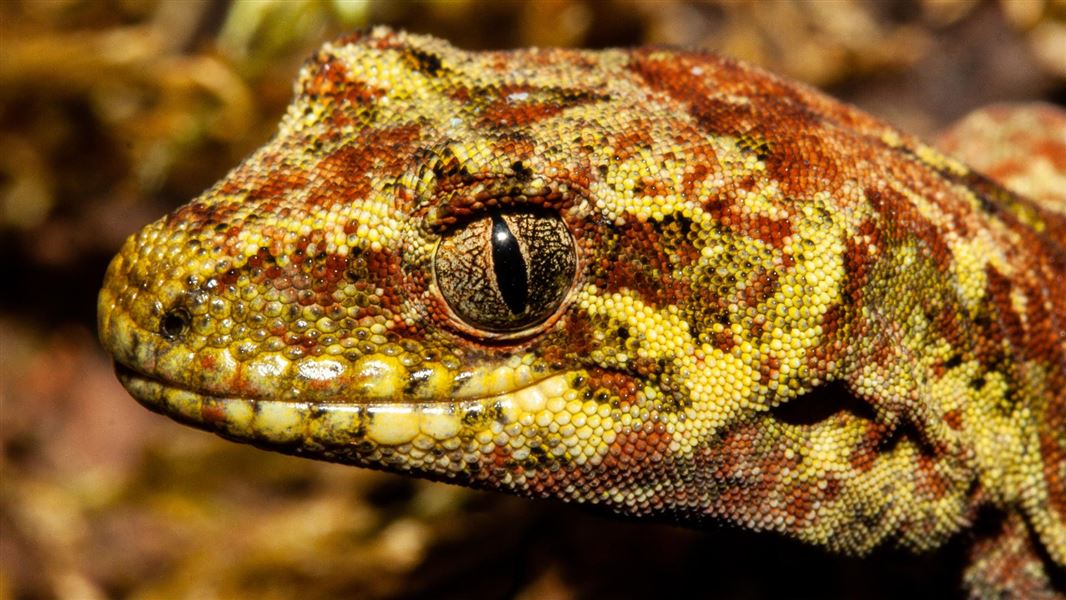
Introduction
Tautuku gecko are colourful species of forest gecko with diverse patterns and at times blue eyes. It’s also known as the blue-eyed gecko and southern forest gecko.Population: Unknown, declining
New Zealand status: Endemic
Conservation status: At Risk–Declining
Found in: Rainforest and scrubland
Threats: Introduced predators, loss of habitat and increase of pine planting
The secretive tautuku gecko (Mokopirirakau “southern forest”) are named after the Catlins forest where they live. They are a challenge to study, as they prefer dense podocarp rainforest and scrubland where they are difficult to find. This is because these forests are large and complex habitats.
As a result, we know little about this species. We also have few survey or monitoring tools suitable for this gecko and its terrain. This has meant we have had limited opportunities to apply the techniques we know to work on similar gecko species.
About this gecko
Currently, this gecko has been recorded in the forests of eastern Southland and south-east Otago. But this gecko’s populations may extend elsewhere. We have records of them from podocarp forest and nearby shrublands. However, we suspect we may find it also lives in beech forests.
The total population size is unknown. But because this species occupies a very large area of forest across the southern South Island, we suspect there may be a relatively large number of them.
Tautuku geckos can grow up to 92mm from nose to base of their tails and weigh up to 14 grams. They enjoy eating insects, fruit and nectar.
What we’re doing to learn more
The focus of DOC research for this gecko is to develop the right survey and monitoring tools that will help find this species.
Our progress to study this gecko has been slow due to the small number of them that we have found. But over many years, researchers have found more and more.
The knowledge we have been able to build is helping us to target the right places and conditions to search. So our future work will focus on developing new monitoring tools. We hope these tools will allow us to estimate this gecko populations more precisely and keep track of their trends.
How you can help
Report all gecko or gecko skin sightings to the nearest DOC office.